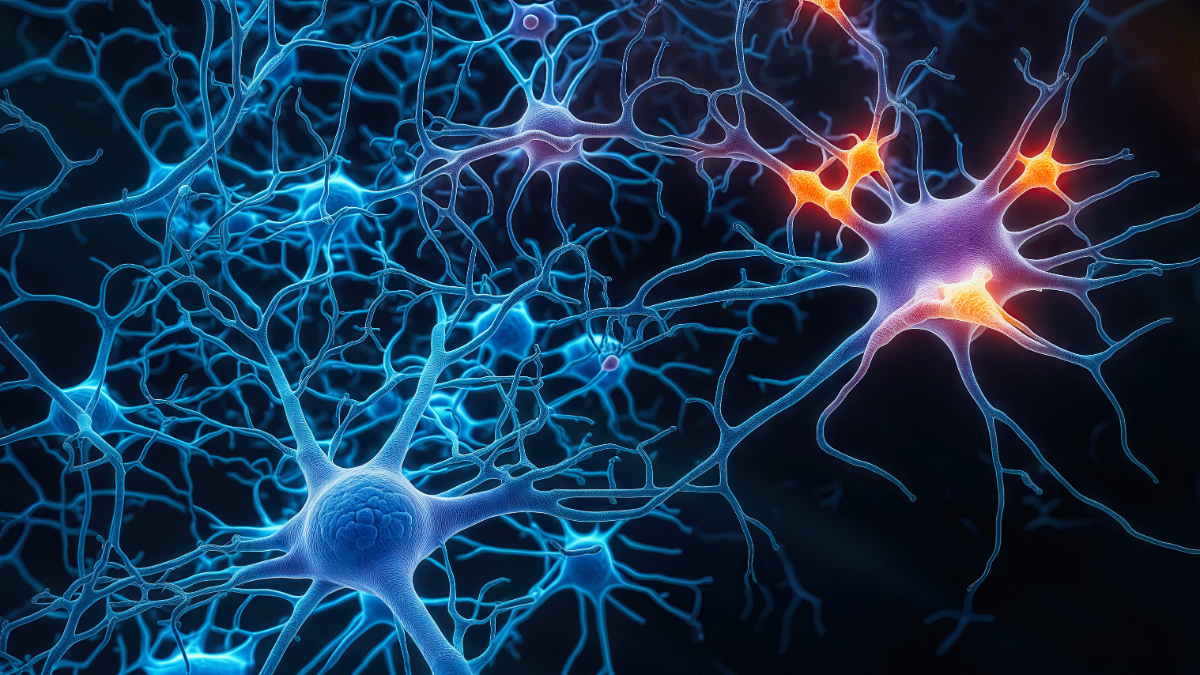Mild cognitive impairment
Investigating tau-based interventions to halt or slow progression of MCI

An early diagnostic marker
Although commonly associated with dementia and Alzheimer’s disease, mild cognitive impairment (MCI) can be under appreciated as an early diagnostic marker.1
Different from normal ageing
MCI is often mistaken for the typical cognitive decline associated with ageing, but its symptoms are more severe, particularly when compared to age-matched peers.2,3 The condition can be an early sign of Alzheimer’s disease,4 and has been correlated with aggregating proteins associated with Alzheimer’s disease, as well as biomarkers associated with neuronal damage.5,6 Attentiveness in diagnosing MCI is therefore critical.
A strong predictor for dementia
Alzheimer’s disease is widely understood to be a progressive and debilitating neurodegenerative condition.4 There has been additional research over the past decade to develop treatments that target protein aggregates in the brain, which may potentially slow progression of Alzheimer’s disease if used early in the disease’s pathology. But this outlook relies entirely on early diagnosis.7
Engage patients and carers on MCI
Early diagnosis in Alzheimer’s disease is important. Identifying Alzheimer’s disease pathology early by recognising MCI symptoms are key to engaging with modifiable risk factors for improving brain health.2 It also presents the only opportunity for early intervention as emerging treatments become available to slow the disease’s progression.
Patients may not always recognise the symptoms of MCI, which is why asking the right questions and engaging in a thorough evaluation is crucial. While primary assessments can help identify cognitive concerns early, a specialist’s diagnosis is needed for confirmation. Early intervention is key, especially in cases where MCI may progress to more serious conditions like Alzheimer’s disease.
-
References and useful links
1. Dunne RA, Aarsland D, O’Brien JT, et al. Mild Cognitive Impairment: the Manchester consensus. Age Ageing. 2020;50(1):72-80. doi:10.1093/ageing/afaa228
2. What Is Mild Cognitive Impairment? | Alzheimers.gov. https://www.nia.nih.gov/alzheimers-dementias/mild-cognitive-impairment
3. Mild Cognitive Impairment (MCI). Alzheimer’s Disease and Dementia. https://www.alz.org/alzheimers-dementia/what-is-dementia/related_conditions/mild-cognitive-impairment
4. Mofrad SA, Lundervold AJ, Vik A, Lundervold AS. Cognitive and MRI trajectories for prediction of Alzheimer’s disease. Sci Rep. 2021;11:2122. doi:10.1038/s41598-020-78095-7
5. Zhang J, Cheng H, Liu W, Li H, Song Y, Jia L. Neurofilament light chain in cerebrospinal fluid or blood as a biomarker for mild cognitive impairment: A systematic review and meta-analysis. Medicine (Baltimore). 2022;101(9):e28932. doi:10.1097/MD.0000000000028932
6. Giacomucci G, Mazzeo S, Bagnoli S, et al. Plasma neurofilament light chain as a biomarker of Alzheimer’s disease in Subjective Cognitive Decline and Mild Cognitive Impairment. J Neurol. 2022;269(8):4270-4280. doi:10.1007/s00415-022-11055-5
7. Ramanan VK, Armstrong MJ, Choudhury P, et al. Antiamyloid Monoclonal Antibody Therapy for Alzheimer Disease: Emerging Issues in Neurology. Neurology. Published online July 26, 2023:10.1212/WNL.0000000000207757. doi:10.1212/WNL.0000000000207757
8. Mayo Clinic Staff. Mild cognitive impairment - Symptoms and causes. Mayo Clinic. Published January 18, 2023. https://www.mayoclinic.org/diseases-conditions/mild-cognitive-impairment/symptoms-causes/syc-20354578


